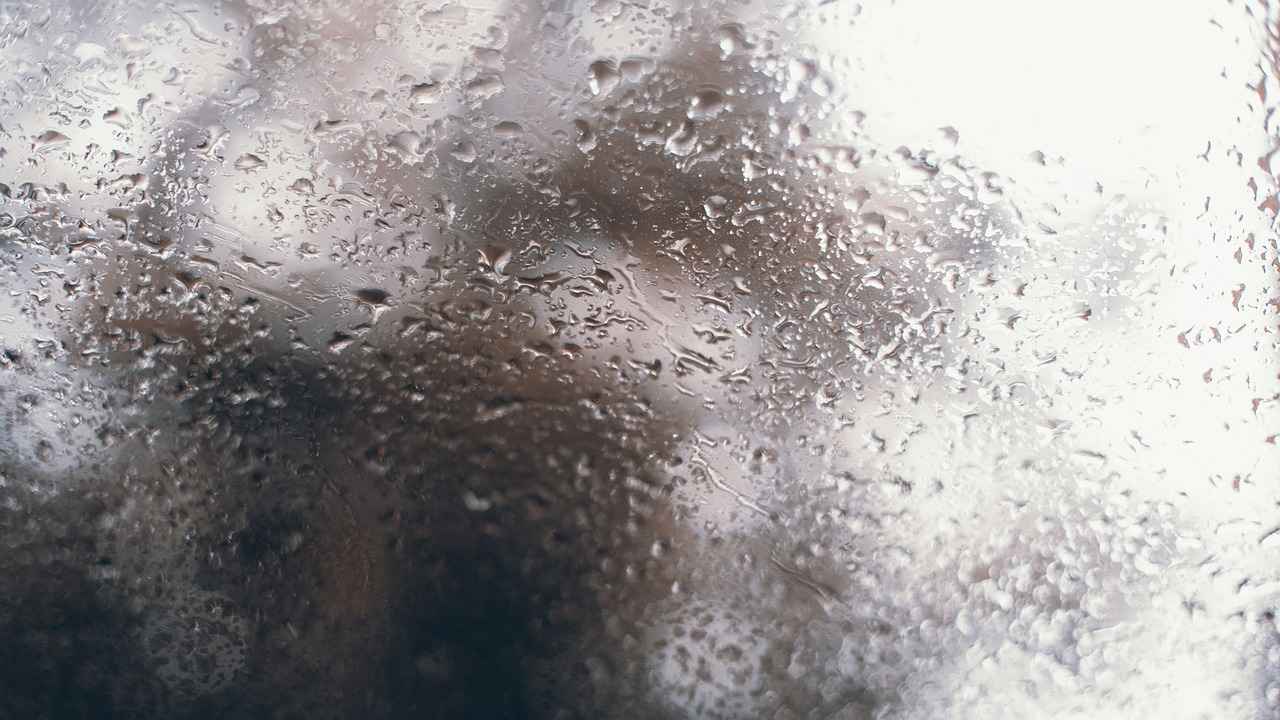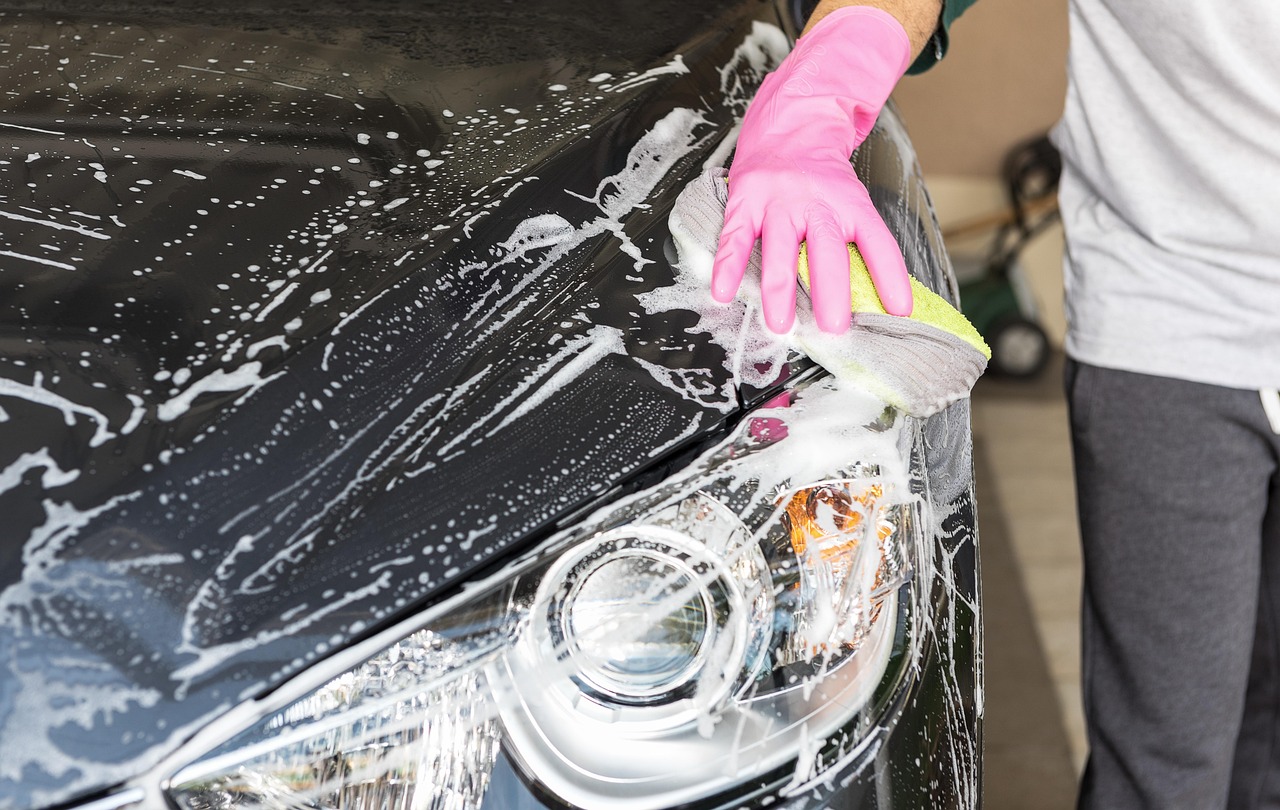Choosing the right windshield wipers fluid is essential for maintaining visibility and safety on the road. The quality of the fluid directly impacts how well your windshield wipers perform, especially under adverse weather conditions. This guide explores the types of fluids available and how to select the best option for your vehicle.
What Are the Different Types of Windshield Wipers Fluid?
Understanding the various types of windshield wipers fluid can help you make an informed choice. Here, we discuss the most common options and their specific benefits for your car:
- Standard Washer Fluid: This is suitable for most driving conditions, providing basic cleaning and visibility.
- Antifreeze Washer Fluid: Specifically designed for colder climates, it prevents freezing in sub-zero temperatures.
- Summer Washer Fluid: Ideal for warmer weather, it effectively removes bugs and grime.
- Eco-Friendly Fluid: Made from biodegradable ingredients, it is a sustainable option for environmentally conscious drivers.
How Do Weather Conditions Affect Windshield Wipers Fluid Selection?
Weather conditions play a critical role in determining which windshield wipers fluid to use. Here’s how temperature and precipitation impact your choice:
What Should You Consider for Cold Weather?
In colder climates, choosing a fluid with antifreeze properties is vital. Winter-specific windshield wipers fluid contains additives that prevent freezing, ensuring that your wipers function effectively even in harsh conditions.
How Does Antifreeze Work in Wipers Fluid?
Antifreeze additives lower the freezing point of the fluid, ensuring it remains effective in sub-zero temperatures. This functionality is crucial for maintaining visibility and avoiding dangerous situations on icy roads.
What Are the Risks of Using Regular Fluid in Winter?
Using standard washer fluid in cold weather can lead to frozen nozzles and reduced visibility. This section discusses the potential dangers, such as impaired driving and accidents, and how to avoid them by selecting the right fluid.
What About Hot Weather Considerations?
In warmer climates, the focus shifts to fluids that can effectively remove grime and bugs. Summer windshield wipers fluid is formulated to tackle the increased dirt and debris found on windshields during hot weather.
What Ingredients Should You Look for in Windshield Wipers Fluid?
The composition of windshield wipers fluid can significantly affect its performance. Key ingredients to consider for optimal cleaning and protection include:
- Methanol: A common ingredient that helps in cleaning and reducing streaks on your windshield.
- Surfactants: These help to break down dirt and grime, making it easier for the wipers to clear the surface.
- Water: The primary solvent that helps to dilute other ingredients and enhance cleaning efficiency.
Are There Eco-Friendly Options Available?
Many consumers are now looking for environmentally friendly choices. Biodegradable windshield wipers fluid is gaining popularity due to its lower environmental impact. This section outlines the benefits of these products, including their effectiveness and reduced harm to ecosystems.
By understanding the various types of windshield wipers fluid and their specific benefits, you can make an informed choice that ensures your visibility and safety on the road. Always consider your local weather conditions and the specific needs of your vehicle when selecting the right fluid.

What Are the Different Types of Windshield Wipers Fluid?
Choosing the right windshield wipers fluid is crucial for ensuring clear visibility and safety while driving. With various options available on the market, understanding the differences can help you make an informed decision. Below, we explore the different types of windshield wipers fluid, highlighting their specific benefits and uses.
Windshield wipers fluid is not a one-size-fits-all solution; it comes in several formulations, each designed for specific conditions and needs. Here are the most common types:
- Standard Washer Fluid: This is the most widely used type, designed for everyday cleaning. It typically contains water, detergents, and solvents to remove dirt and debris from your windshield.
- Winter Formula: In colder climates, a winter-specific fluid is essential. This type contains antifreeze agents to prevent the fluid from freezing in low temperatures, ensuring that your wipers can operate effectively.
- Summer Formula: Designed for warm weather, summer fluids often include ingredients that help break down bugs and grime. They may also contain UV protectants to shield your windshield from sun damage.
- Eco-Friendly Options: With growing environmental awareness, many brands now offer biodegradable windshield wipers fluid. These formulas are made from natural ingredients and are less harmful to the environment.
- Concentrated Fluid: This type requires dilution with water before use. It is often more cost-effective and can be customized according to the season or specific cleaning needs.
Each type of windshield wipers fluid serves a unique purpose, and selecting the right one can significantly enhance your driving experience.
Weather plays a pivotal role in determining the appropriate windshield wipers fluid. Different climates demand different properties in the fluid to maintain optimal performance.
In regions with harsh winters, it is vital to choose a windshield wipers fluid that contains antifreeze. This helps to prevent the fluid from freezing in the reservoir and the nozzles, ensuring that your wipers can clear your windshield effectively.
Antifreeze additives work by lowering the freezing point of the fluid. This ensures that even in sub-zero temperatures, the fluid remains liquid and functional, allowing for clear visibility when driving.
Using standard washer fluid in winter conditions can lead to several issues, including:
- Frozen nozzles, which can prevent the fluid from spraying.
- Reduced visibility due to ice buildup on the windshield.
- Potential damage to the wiper system caused by frozen components.
In warmer climates, the focus shifts towards fluids that effectively remove dirt, grime, and insect residue. Summer windshield wipers fluid is formulated to tackle these challenges while also providing protection against UV rays.
The composition of windshield wipers fluid greatly influences its cleaning power and effectiveness. Key ingredients to consider include:
- Methanol: This is a common ingredient that aids in cleaning and reducing streaks on your windshield.
- Surfactants: These help to break down dirt and grime, enhancing the fluid’s cleaning ability.
- Fragrance: While not essential, some fluids include a pleasant scent to improve the user experience.
For environmentally conscious consumers, many brands now offer biodegradable windshield wipers fluid. These options are formulated with natural ingredients that minimize environmental impact while providing effective cleaning.

How Do Weather Conditions Affect Windshield Wipers Fluid Selection?
Understanding how weather conditions impact your choice of windshield wipers fluid is essential for ensuring optimal visibility and safety while driving. Different weather scenarios require specific fluid characteristics to perform effectively. Below, we explore how temperature and precipitation influence your selection of windshield wipers fluid.
Weather conditions significantly dictate the type of windshield wipers fluid you should use. Factors such as temperature and precipitation can affect fluid performance, leading to potential visibility issues if the wrong type is used.
In regions where temperatures drop below freezing, using a windshield wipers fluid with antifreeze properties becomes crucial. Regular washer fluid can freeze, causing your nozzles to become blocked and rendering your wipers ineffective. Winter-specific fluids are formulated to remain liquid in sub-zero conditions, ensuring that your windshield remains clear.
- Antifreeze Additives: These lower the freezing point of the fluid, preventing it from solidifying.
- Enhanced Performance: Winter fluids often contain additional cleaning agents to tackle road grime and salt.
Using standard washer fluid during winter months can lead to several issues:
- Frozen Nozzles: Regular fluid can freeze, blocking the spray and leaving you with reduced visibility.
- Streaking: Non-antifreeze fluids may not clean effectively in cold weather, leading to streaks on your windshield.
When it comes to rainy or snowy conditions, you should prioritize fluids that can effectively remove water spots and road debris. Fluids designed for wet weather often contain surfactants that help break down and lift grime, ensuring a clear view.
In warmer climates, the focus shifts to fluids that can handle the challenges posed by heat:
- Bug and Grime Removal: Summer fluids are typically formulated to tackle the increased presence of insects and dirt.
- Evaporation Resistance: High-temperature fluids are designed to resist evaporation, maintaining their effectiveness longer.
High humidity can lead to quick buildup of dirt and grime on your windshield. In such cases, selecting a fluid with superior cleaning properties is essential. Look for formulas that include ingredients specifically designed to combat moisture-related issues.
When selecting windshield wipers fluid, consider the following key ingredients based on the weather:
- Methanol: A common ingredient that aids in cleaning and reducing streaks.
- Surfactants: Help break down grime and improve fluid performance in various weather conditions.
- Biodegradable Options: Eco-friendly fluids are increasingly popular, providing effective cleaning without harming the environment.
By understanding how different weather conditions affect windshield wipers fluid selection, you can ensure that you choose the right product for your driving environment. This knowledge not only enhances your visibility but also contributes to your overall safety on the road.
What Should You Consider for Cold Weather?
When it comes to driving in cold weather conditions, ensuring your vehicle is equipped with the right windshield wipers fluid is crucial. In regions where temperatures dip below freezing, standard washer fluids simply won’t cut it. Instead, selecting a fluid specifically formulated for winter use can make a significant difference in maintaining visibility and ensuring your safety on the road.
Winter-specific windshield wipers fluid contains antifreeze properties that prevent the fluid from freezing in the reservoir or on the windshield. This is particularly important because:
- Prevents Frozen Nozzles: Regular washer fluid can freeze in the nozzles, rendering them ineffective. Winter fluid keeps the nozzles operational.
- Enhances Visibility: In snowy or icy conditions, having a clear windshield is vital. Winter fluids are designed to quickly remove ice, snow, and road grime.
- Protects Your Wipers: Using the right fluid can help prevent wear and tear on your wiper blades, extending their lifespan.
Antifreeze additives in winter windshield wipers fluid work by lowering the freezing point of the liquid. This means that even in sub-zero temperatures, the fluid remains effective and does not solidify. The primary ingredients, such as methanol and other alcohols, help maintain fluidity and ensure that the washer system operates smoothly.
Using regular windshield wipers fluid during winter months can lead to several issues:
- Frozen Components: The fluid can freeze in the reservoir, leading to potential damage and costly repairs.
- Reduced Visibility: If the fluid freezes on the windshield, it can obstruct your view, increasing the risk of accidents.
- Increased Maintenance: You may find yourself frequently replacing wiper blades and other components due to damage caused by improper fluid.
When selecting a winter windshield wipers fluid, consider the following key ingredients:
- Alcohol-Based Solvents: These help lower the freezing point and enhance cleaning capabilities.
- Surfactants: These ingredients aid in breaking down grime and dirt, ensuring a clear view.
- Biodegradable Options: Many brands now offer eco-friendly fluids that are less harmful to the environment while still providing excellent performance.
With increasing awareness of environmental issues, many consumers are seeking eco-friendly windshield wipers fluids. These biodegradable options are formulated to minimize environmental impact while still offering the necessary antifreeze properties for winter driving. Choosing these products not only helps protect the environment but also ensures that your vehicle remains safe and functional in cold weather.
In conclusion, selecting the right windshield wipers fluid for cold weather is essential for maintaining visibility and safety. By opting for winter-specific fluids with antifreeze properties, you can prevent freezing, enhance your driving experience, and protect your vehicle from potential damage.
How Does Antifreeze Work in Wipers Fluid?
When driving in cold weather, maintaining clear visibility is crucial for safety. One of the key components in ensuring that your windshield wipers fluid remains effective is the presence of antifreeze additives. These special ingredients play a vital role in lowering the freezing point of the fluid, allowing it to function optimally even in sub-zero temperatures. This section will delve into the mechanics of how these antifreeze additives work and their importance in maintaining visibility during winter conditions.
Antifreeze additives are typically composed of substances like methanol or ethanol, which have unique properties that prevent the fluid from freezing. When added to windshield wipers fluid, these compounds create a solution that can withstand much lower temperatures than water alone. For instance, while plain water freezes at 32°F (0°C), a properly formulated windshield wipers fluid with antifreeze can remain liquid at temperatures as low as -20°F (-29°C).
In addition to lowering the freezing point, antifreeze additives also help maintain the fluid’s viscosity. This means that even in frigid temperatures, the fluid remains effective in clearing away ice, snow, and other debris from your windshield. The ability to maintain a consistent flow ensures that the windshield wipers can operate smoothly without becoming clogged or frozen.
Moreover, these additives enhance the cleaning properties of the fluid. They help break down road grime, salt, and other contaminants that can accumulate on the windshield during winter months. This ensures that your view is clear, which is essential for safe driving. Without the right antifreeze components, drivers may experience streaks or smudges that can obstruct their line of sight.
It’s also important to note that using regular windshield wipers fluid in cold conditions can lead to significant problems. If the fluid freezes in the reservoir or the lines, it can cause frozen nozzles and even damage the wiper system. This can result in costly repairs and, more importantly, dangerous driving situations where visibility is compromised.
In summary, antifreeze additives are crucial for ensuring that windshield wipers fluid remains effective in harsh winter conditions. By lowering the freezing point, maintaining viscosity, and enhancing cleaning properties, these additives play an essential role in keeping your windshield clear and your driving experience safe. When selecting windshield wipers fluid, particularly for cold weather, always look for products that specifically mention antifreeze properties to ensure optimal performance.
What Are the Risks of Using Regular Fluid in Winter?
When winter arrives, the roads can become treacherous, making it essential to maintain clear visibility while driving. One often overlooked aspect of winter vehicle maintenance is the choice of windshield wipers fluid. Using regular washer fluid in cold weather can lead to several dangerous situations, including frozen nozzles and impaired visibility. In this section, we will explore the risks associated with using standard fluid during winter months and offer practical solutions to ensure your safety on the road.
Regular windshield washer fluids are typically designed for moderate temperatures and may not contain the necessary antifreeze properties. As temperatures drop, these fluids can freeze quickly, causing several issues:
- Frozen Nozzles: When the washer fluid freezes in the nozzles, it prevents the fluid from spraying onto the windshield, leaving you with a dirty and obstructed view.
- Reduced Visibility: Without the ability to clean your windshield effectively, dirt, salt, and grime can accumulate, significantly impairing your visibility while driving.
- Potential Damage: Frozen fluid can expand and damage the washer fluid reservoir or the pump, leading to costly repairs.
Poor visibility is one of the leading causes of winter accidents. In snowy or icy conditions, the ability to see clearly is paramount. Studies show that drivers with obstructed views are more likely to be involved in collisions. Here are some potential consequences of driving with impaired visibility:
- Increased Accident Risk: The inability to see other vehicles, pedestrians, or road hazards can lead to serious accidents.
- Legal Implications: If you are involved in an accident due to poor visibility, you may face legal repercussions or liability claims.
- Insurance Issues: Insurance companies may question your claim if it’s determined that your visibility was compromised due to inadequate maintenance.
To ensure your safety during winter driving, consider the following tips:
- Use Winter-Grade Washer Fluid: Invest in a washer fluid specifically designed for cold temperatures. These fluids contain antifreeze agents that prevent freezing.
- Check Fluid Levels Regularly: Make it a habit to inspect your washer fluid levels frequently, especially before embarking on long trips.
- Test Your Nozzles: Regularly check that your nozzles are functioning properly and not clogged, ensuring that fluid can spray effectively.
In summary, using regular washer fluid in winter can pose significant risks, including frozen nozzles and impaired visibility. By choosing the right winter-grade fluid and maintaining your vehicle, you can enhance your safety and driving experience during the colder months. Remember, staying proactive about your vehicle’s maintenance can save you from dangerous situations.
What About Hot Weather Considerations?
When temperatures soar, the performance of your vehicle’s windshield wipers fluid becomes even more critical. In warmer climates, the primary concern shifts to keeping your windshield clean from grime, bugs, and other debris that can accumulate during hot weather. This section delves into the characteristics of summer windshield wipers fluid, highlighting essential factors to consider for optimal performance.
Summer windshield wipers fluid is specifically formulated to tackle the unique challenges posed by hot weather. Unlike winter fluids that focus on preventing freezing, summer fluids are designed to:
- Remove Insects: Hot weather often leads to an increase in insect activity, and their residue can obstruct your view.
- Combat Grime: Dust and dirt can accumulate rapidly, necessitating a fluid that effectively cleans without leaving streaks.
- Enhance Visibility: Clear visibility is paramount for safety, making the right fluid choice crucial.
When selecting a summer windshield wipers fluid, consider the following key ingredients that enhance its effectiveness:
- Surfactants: These agents help break down grime and dirt, allowing for a thorough clean.
- Water: High-quality summer fluids often have a higher water content, which aids in diluting and washing away debris.
- Alcohols: Ingredients like isopropanol can help in quick evaporation, preventing streaking and ensuring a clear view.
Extreme temperatures and prolonged sunlight can impact the effectiveness of your windshield wipers fluid. Here’s how:
- Evaporation: High temperatures can cause certain fluids to evaporate more quickly, reducing their effectiveness.
- Degradation: Prolonged exposure to sunlight can degrade some fluids, making them less effective over time.
Using winter windshield wipers fluid during the summer months can lead to several issues:
- Streaking: Winter fluids may not effectively remove summer grime, leading to streaks and smudges.
- Reduced Cleaning Power: These fluids often lack the necessary ingredients to combat insect residue and dust accumulation.
As environmental awareness grows, many manufacturers are now offering eco-friendly windshield wipers fluids. These biodegradable options are designed to minimize environmental impact while still providing effective cleaning. Benefits include:
- Less Harmful Chemicals: Eco-friendly fluids often contain fewer harsh chemicals, making them safer for the environment.
- Biodegradability: These fluids break down naturally, reducing pollution and protecting aquatic life.
In conclusion, choosing the right summer windshield wipers fluid is essential for maintaining visibility and safety in warmer climates. By considering the specific challenges posed by hot weather and selecting fluids with the right ingredients, you can ensure your windshield remains clear and your driving experience is safe and enjoyable.

What Ingredients Should You Look for in Windshield Wipers Fluid?
When it comes to maintaining the clarity and safety of your vehicle’s windshield, the choice of windshield wipers fluid plays a crucial role. The composition of windshield wipers fluid can significantly impact its cleaning efficiency and protective qualities. In this section, we will delve into the essential ingredients you should consider for optimal performance.
Understanding the key components of windshield wipers fluid can help you make an informed decision. Here are some of the most important ingredients to look for:
- Methanol: This is a common ingredient in many windshield wipers fluids. Methanol acts as a solvent that helps dissolve dirt, grime, and other contaminants on your windshield. Additionally, it reduces streaking, ensuring a clear view while driving.
- Ethylene Glycol: Often included for its antifreeze properties, ethylene glycol prevents the fluid from freezing in cold weather. This is especially important in regions that experience harsh winters, as it ensures that your wipers remain functional.
- Surfactants: These compounds are designed to break down the surface tension of water, allowing the fluid to spread more evenly across the windshield. Surfactants enhance the cleaning power of the fluid, making it more effective at removing stubborn residues.
- Fragrance: While not essential for performance, many manufacturers add fragrance to their fluids for a more pleasant experience. However, it’s important to note that some fragrances may cause allergic reactions in sensitive individuals.
- Colorants: Some windshield wipers fluids contain colorants to help users identify the fluid in their reservoir. While this does not affect performance, it can be useful for ensuring you are using the right product.
When selecting a windshield wipers fluid, it’s important to consider the specific needs of your vehicle and driving conditions. For instance, if you live in an area with extreme temperatures, a fluid with antifreeze properties is crucial. Conversely, if you frequently drive in urban areas with heavy traffic, a fluid with strong cleaning agents may be more beneficial.
Methanol is not just a common ingredient; it is a key component that enhances the effectiveness of windshield wipers fluid. Its ability to dissolve grime and dirt makes it invaluable for maintaining visibility. Furthermore, methanol helps to reduce streaks, which can be a significant issue when driving in bright sunlight or at night. Choosing a fluid that contains methanol can lead to a safer driving experience.
As environmental concerns grow, many consumers are seeking eco-friendly windshield wipers fluids. These biodegradable options are formulated without harsh chemicals, making them safer for the environment. They often utilize plant-based ingredients that effectively clean windshields while minimizing ecological impact. Switching to an eco-friendly option can be a simple yet impactful choice for environmentally conscious drivers.
In conclusion, the composition of windshield wipers fluid is vital for ensuring optimal performance and safety. By understanding the key ingredients—such as methanol, ethylene glycol, and surfactants—you can select a fluid that meets your specific needs. Whether you prioritize cleaning efficiency, antifreeze properties, or eco-friendliness, making an informed choice will enhance your driving experience.
Why Is Methanol Important in Wipers Fluid?
Methanol plays a crucial role in windshield wipers fluid, serving as a key ingredient that enhances the fluid’s effectiveness. Understanding its importance can help you make informed choices when selecting wipers fluid for your vehicle.
Methanol is primarily known for its cleaning properties. It acts as a solvent that helps dissolve dirt, grime, and other contaminants that accumulate on your windshield. By incorporating methanol into wipers fluid, manufacturers ensure that the fluid can effectively break down stubborn residues, providing a clearer view while driving.
One of the most frustrating experiences while driving is dealing with streaks on your windshield. Methanol helps reduce these streaks by promoting even distribution of the fluid across the glass surface. When the fluid is applied, methanol ensures that the solution spreads uniformly, allowing the wipers to wipe away dirt without leaving behind unsightly marks.
While methanol is a type of alcohol, it is generally safe for use in automotive applications when used in appropriate concentrations. The small amounts found in windshield wipers fluid are typically non-toxic to humans and pets when used as directed. However, it is essential to handle it with care and avoid ingestion or prolonged skin contact.
- Effective Cleaning: Methanol’s solvent properties allow for efficient removal of dirt and grime.
- Streak-Free Finish: Reduces the likelihood of streaks, enhancing visibility.
- Quick Evaporation: Methanol evaporates quickly, preventing residue build-up on the windshield.
- Cost-Effective: Methanol-based fluids are often more affordable compared to other specialized cleaning solutions.
While methanol has many advantages, there are some considerations to keep in mind. For instance, it can be harmful to paint and certain plastics if spilled. Therefore, it is advisable to use these fluids carefully and to clean any spills promptly. Additionally, methanol has a lower freezing point compared to some other alcohols, which makes it suitable for cold weather conditions, but it may not be the best choice in extremely low temperatures without proper additives.
When selecting a windshield wipers fluid that contains methanol, consider the following:
- Climate Suitability: Ensure the fluid is appropriate for your local weather conditions.
- Concentration Levels: Check the concentration of methanol to ensure it meets your cleaning needs without being overly harsh.
- Additional Ingredients: Look for fluids that include other beneficial ingredients, such as antifreeze agents for winter use.
In conclusion, methanol is a vital component in windshield wipers fluid, contributing significantly to its cleaning efficacy and performance. By understanding its role and benefits, you can make a more informed decision when choosing the right wipers fluid for your vehicle, ensuring clear visibility and safe driving conditions.
Are There Eco-Friendly Options Available?
As environmental awareness continues to rise, many consumers are seeking eco-friendly options in every aspect of their lives, including automotive care. One area gaining attention is the choice of windshield wipers fluid. Traditional fluids often contain harmful chemicals that can adversely affect the environment. In contrast, biodegradable windshield wipers fluid offers a sustainable alternative that not only cleans effectively but also minimizes ecological impact.
Biodegradable windshield wipers fluid is specifically formulated using natural ingredients that break down more easily in the environment compared to conventional fluids. These products are designed to be less toxic and reduce the risk of pollution when they enter water systems.
- Environmental Protection: The primary benefit of biodegradable fluids is their reduced environmental footprint. Unlike traditional fluids that can leach harmful substances into the soil and waterways, biodegradable options are safer for aquatic life and ecosystems.
- Safety for Users: Many biodegradable fluids are made with non-toxic ingredients, making them safer for consumers, especially those with children or pets who might come into contact with spilled fluid.
- Effective Cleaning: Contrary to misconceptions, biodegradable fluids can effectively remove dirt, grime, and road salt, ensuring clear visibility while driving.
- Regulatory Compliance: As regulations around chemical use tighten, switching to biodegradable options can help consumers comply with local laws aimed at reducing environmental harm.
The impact of biodegradable windshield wipers fluid on the environment is significantly less detrimental than that of traditional fluids. When biodegradable fluids are washed away, they decompose naturally and do not contribute to long-term pollution. This natural breakdown process helps maintain cleaner waterways and healthier ecosystems.
When selecting biodegradable windshield wipers fluid, look for certifications such as ASTM D6866 or OEKO-TEX, which indicate that the product meets specific environmental standards. These certifications provide assurance that the fluid is genuinely eco-friendly and effective.
Several brands are leading the way in offering biodegradable windshield wipers fluid. Some notable mentions include:
- EcoTouch: Known for its commitment to sustainable products, EcoTouch offers a highly effective biodegradable windshield washer fluid.
- Blue Coral: This brand provides a range of eco-friendly automotive products, including a biodegradable windshield wipers fluid that is safe for the environment.
- Rain-X: While primarily known for its glass treatment products, Rain-X has introduced biodegradable options that maintain their reputation for quality.
In conclusion, the shift towards biodegradable windshield wipers fluid reflects a growing commitment to sustainability among consumers. By choosing eco-friendly options, drivers not only enhance their vehicle’s performance but also contribute to a healthier planet. As more brands emerge with green alternatives, consumers have the power to make choices that align with their values while ensuring safety and cleanliness on the road.
Frequently Asked Questions
- What type of windshield wipers fluid should I use in winter?
In winter, it’s crucial to choose a fluid with antifreeze properties. This helps prevent the fluid from freezing in the reservoir and ensures your wipers remain effective, even in sub-zero temperatures.
- Can I use regular windshield wipers fluid in hot weather?
While you can use regular fluid, it’s best to opt for a summer-specific formula. These fluids are designed to tackle grime and bugs that accumulate during warmer months, ensuring clear visibility.
- Is methanol safe to use in windshield wipers fluid?
Yes, methanol is commonly used in wipers fluid as it helps in cleaning and reducing streaks. However, it’s important to handle it carefully and keep it out of reach of children and pets.
- Are there eco-friendly windshield wipers fluid options available?
Absolutely! Many brands now offer biodegradable windshield wipers fluid that is less harmful to the environment. These options provide effective cleaning while being more sustainable.
- What happens if I use the wrong windshield wipers fluid?
Using the wrong fluid, especially in extreme temperatures, can lead to frozen nozzles or ineffective cleaning. This can compromise your visibility and safety on the road.


























































